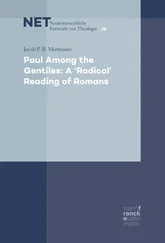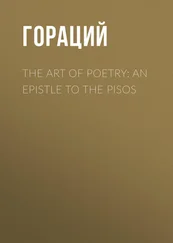Charles Gore - St. Paul's Epistle to the Romans - A Practical Exposition. Vol. II
Здесь есть возможность читать онлайн «Charles Gore - St. Paul's Epistle to the Romans - A Practical Exposition. Vol. II» — ознакомительный отрывок электронной книги совершенно бесплатно, а после прочтения отрывка купить полную версию. В некоторых случаях можно слушать аудио, скачать через торрент в формате fb2 и присутствует краткое содержание. Издательство: Иностранный паблик, Жанр: foreign_religion, foreign_antique, foreign_prose, на английском языке. Описание произведения, (предисловие) а так же отзывы посетителей доступны на портале библиотеки ЛибКат.
- Название:St. Paul's Epistle to the Romans: A Practical Exposition. Vol. II
- Автор:
- Издательство:Иностранный паблик
- Жанр:
- Год:неизвестен
- ISBN:нет данных
- Рейтинг книги:5 / 5. Голосов: 1
-
Избранное:Добавить в избранное
- Отзывы:
-
Ваша оценка:
- 100
- 1
- 2
- 3
- 4
- 5
St. Paul's Epistle to the Romans: A Practical Exposition. Vol. II: краткое содержание, описание и аннотация
Предлагаем к чтению аннотацию, описание, краткое содержание или предисловие (зависит от того, что написал сам автор книги «St. Paul's Epistle to the Romans: A Practical Exposition. Vol. II»). Если вы не нашли необходимую информацию о книге — напишите в комментариях, мы постараемся отыскать её.
St. Paul's Epistle to the Romans: A Practical Exposition. Vol. II — читать онлайн ознакомительный отрывок
Ниже представлен текст книги, разбитый по страницам. Система сохранения места последней прочитанной страницы, позволяет с удобством читать онлайн бесплатно книгу «St. Paul's Epistle to the Romans: A Practical Exposition. Vol. II», без необходимости каждый раз заново искать на чём Вы остановились. Поставьте закладку, и сможете в любой момент перейти на страницу, на которой закончили чтение.
Интервал:
Закладка:
Let their table be made a snare, and a trap,
And a stumblingblock, and a recompense unto them:
Let their eyes be darkened, that they may not see,
And bow thou down their back alway.
I say then, Did they stumble that they might fall? God forbid: but by their fall salvation is come unto the Gentiles, for to provoke them to jealousy. Now if their fall is the riches of the world, and their loss the riches of the Gentiles; how much more their fulness?
1. We learn a little more exactly about St. Paul's doctrine of election in this chapter. God's final purpose for good is, as we shall see at the end of the chapter – and in what sense we shall have to consider – upon all men whatsoever. But this universal purpose is worked out through special 'elect' instruments. Thus God recognized 65 65 This – to recognize or mark out beforehand – is the meaning of divine 'foreknowing' in St. Paul. See vol. i. pp. 317 f.
Israel beforehand, i.e. in His eternal counsels, as the people to bear His name in the world. This was the selection of Israel, and was an act of which the initiative was wholly on God's side. It was a pure act of the divine favour. This 'selection of grace' was upon Israel as a whole, but at later stages of the history, frequently enough, owing to the disobedience and apostasy of the majority, it is found to rest in an effective sense only upon a 'remnant' whom God has reserved for Himself, because they have not utterly refused to correspond to the original and continuous call of the divine grace. For the rest their privileges become the occasion of their fall: their light becomes their darkness. For judgement always and inevitably waits upon any form of misused privilege. Thus, when the Christ came, only an elect remnant of the nation welcomed Him. The rest fell under judgement. But God overrules even this apostasy. He takes the opportunity of the absence of those who should have been at the marriage supper of the king's son, to fill the great vacancy from the Gentile world. They are brought within the scope of the selecting call. But God's original vocation is still irrevocably upon apostate Israel. The new Gentile converts are to stimulate them to recover their lost privileges. Their wilfulness and obstinacy is to give place to humility and faith; and Jew and Gentile all together are to constitute the elect catholic church.
This is very simple and cheerful teaching. It leaves for us to consider later the question whether God's original and special vocation resting upon the Jews is finally to constrain them all to conversion, and whether in the same way His ultimate purpose of salvation for all men is to take place infallibly in all cases. This question is still to be considered. But at any rate the doctrine of election has lost all that gave it a colouring of arbitrariness and injustice and narrow sympathies.
We ought to notice in the above passage how St. Paul, in recalling the continual obstinacy and hardening of the majority of the chosen people, is following on the lines of St. Stephen's speech (Acts vii. 51).
2. The imprecatory psalms are, especially in our Anglican public services, a great stumblingblock to many – especially the 69th (here cited by St. Paul) and the 109th. These psalms do not represent barely the cry of an individual sufferer invoking God's curse upon his private enemies. The sufferer, who is the psalmist, or with whom at least the psalmist identifies himself, represents afflicted righteousness. It is God's people, His 'servant' and 'son' according to the language of the Old Testament, that is under persecution from the enemies of God. And he calls upon God to vindicate Himself by punishing the adversary; to let it be seen that His word and promise is truth. 'How long, O God, holy and true, dost thou not judge and avenge?' Even from this point of view, however, when with the assistance of the modern critics we have in the main purged away the element of private vindictiveness, these psalms no doubt remain with the stamp of narrowness and bitterness upon them. They have none of the larger New Testament sense that the worst enemies of the Church may be converted and live: that our attitude towards all men is to wish them good, purely good and not evil, even though it be under the form of judgement: 'Rejoice when men revile you and persecute you'; 'Bless them that curse you, do good to them that hate you, pray for them which despitefully use you'; 'That by your good works which they shall behold, they may glorify God in the day of visitation.'
But granted the limitation and bitterness still remaining in these psalms, their citation in the New Testament shows us what is for us the right use of them. They are by implication taken up – where we should least expect them – into the mouth of the Son of Man 66 66 Both in this passage and in Acts i. 20.
. That is to say, it is His enemies on whom the judgements are imprecated. There is a wrath of the Lamb. There is a divine sword of judgement which proceeds out of His mouth. He, the administrator of the righteousness of God, expects from His Father judgement on His enemies. It is not necessarily, as St. Paul here indicates, final judgement: the judgement upon the Jews was not yet that; but judgement of some sort – temporal or final – upon His wilful adversaries, the Son expects of the Father. And we men, as we repeat these psalms, are, like the first Christians in face of the suicide of Judas, to identify ourselves with the divine righteousness and accept the law of just retribution. This is the deepest and truest sense in which we can still say the imprecatory psalms; and in these days of a philanthropy that often lacks the stern savour of righteousness, it is very necessary that we should make this sense our own.
DIVISION IV. § 5 67 67 I follow, by preference, the paragraphs of the R.V., unless there is very strong reason to the contrary.
. CHAPTER XI. 13-36.
God's present purpose for the Jews through the Gentiles: and so for all humanity
St. Paul would not have it supposed that, in his zeal for the recovery of Israel, he was proving faithless to his vocation as the apostle of the Gentiles. On the contrary, he explains (assuming the Roman Christians to be Gentiles in the mass) that he is, by this very zeal, fulfilling that vocation. The conversion of the Gentiles was meant to react as a stimulus on the Jews. When St. Paul magnifies his Gentile ministry, he does so always with the motive of stinging the jealousy of his own people, and so bringing some of them to salvation. How can such a consummation be too eagerly desired? For if even so pitiable an event as their rejection has yet, in God's providence, been overruled for a good end – the bringing back of the outside world into the fellowship of God 68 68 Cf. 2 Cor. v. 19, 'God was in Christ reconciling the world unto Himself.'
Конец ознакомительного фрагмента.
Текст предоставлен ООО «ЛитРес».
Прочитайте эту книгу целиком, купив полную легальную версию на ЛитРес.
Безопасно оплатить книгу можно банковской картой Visa, MasterCard, Maestro, со счета мобильного телефона, с платежного терминала, в салоне МТС или Связной, через PayPal, WebMoney, Яндекс.Деньги, QIWI Кошелек, бонусными картами или другим удобным Вам способом.
Читать дальшеИнтервал:
Закладка:
Похожие книги на «St. Paul's Epistle to the Romans: A Practical Exposition. Vol. II»
Представляем Вашему вниманию похожие книги на «St. Paul's Epistle to the Romans: A Practical Exposition. Vol. II» списком для выбора. Мы отобрали схожую по названию и смыслу литературу в надежде предоставить читателям больше вариантов отыскать новые, интересные, ещё непрочитанные произведения.
Обсуждение, отзывы о книге «St. Paul's Epistle to the Romans: A Practical Exposition. Vol. II» и просто собственные мнения читателей. Оставьте ваши комментарии, напишите, что Вы думаете о произведении, его смысле или главных героях. Укажите что конкретно понравилось, а что нет, и почему Вы так считаете.












